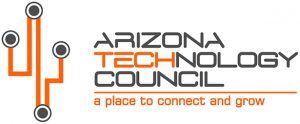Arizona Technology Council 2024 Legislative Session Recap

The Arizona Technology Council, its Public Policy Committee and Public Policy Partners worked hard on behalf of Council members during the 56th Legislature’s second session, which concluded on June 15 after 160 days. The session was filled with significant legislative activity, including the introduction of 1,660 bills and 138 memorials and resolutions.
The Council’s key takeaways include:
Legislative Outcomes:
- Of the 332 bills passed by both chambers, Gov. Katie Hobbs signed 259 into law and vetoed 73.
- A total of 31 memorials and resolutions were adopted.
- Most new laws will take effect on Sept. 14, 2024.
Arizona Technology Council Priorities:
- The Council successfully advocated continuation of the Arizona Commerce Authority (ACA) for an additional five years.
- Efforts continue to advance computer science education in schools, including an educational campaign to build support for phased implementation in curricula.
Additional Legislative Interests for the Council:
- The Council monitored bills related to clean energy, air quality, education and commerce, ensuring our members’ interests were represented. We stopped several pieces of legislative proposals that would have been detrimental.
State Budget:
- The session culminated in a $16.1 billion budget package, a reduction from last year’s $18 billion budget.
- Significant budget cuts were necessary to address a $1.3 billion deficit, affecting multiple areas such as education and infrastructure. The ACA did not escape cuts to several of its programs and budgets.
Budget Highlights:
- Funding for the Adult Workforce Program was changed from ongoing to one-time.
- The state university system faced a $22 million cut while community colleges saw a $54 million reduction.
- The $5 million appropriation for electric vehicle charging infrastructure was eliminated.
- The $333 million payment to the Water Infrastructure Finance Authority of Arizona and the $11 million brackish groundwater recovery pilot program were both cut.
- $55.7 million from the Arizona Competes Fund was redirected to the general fund.
- Reductions included $24 million in state matching funds for broadband and an average 3.45% cut to state agency budgets.
Notable Legislation:
- After much debate throughout the session, the ACA was continued for five years with modest changes.
- Continuing this fall will be discussions on reauthorizing Proposition 123, which affects K-12 funding. Set to expire in 2025, Proposition 123 was initially approved in 2016 to restore funding withheld during the Great Recession.
- Water management emerged as a critical issue, with seven water-related bills reaching the governor’s desk. The three signed into law are:
- SB 1081 – Exemption areas; assured water supply
- SB 1181 – Groundwater replenishment; member lands; areas
- SB 1242 – Water conservation grant fund purpose
Vetoed were four bills, including SB 1172 that aimed to repurpose groundwater for development. Gov. Hobbs cited the need for further policy refinement.
A Bit of Fun:
- Arizona has officially recognized Pluto as the state planet, adding a unique touch to our collection of state symbols.
Looking Ahead:
This year is an election year, with significant implications for Arizona. All 90 legislative seats are up for election, with party control of both the House and Senate at stake. The primary election on July 30 decided several key races for the state, given their district voter registration makeup.
Key election results include:
- Ken Bennett lost his reelection bid against former lawmaker Mark Finchem.
- David Cook lost his race to replace Sen. Wendy Rogers.
- Former lawmaker Vince Leach beat Sen. Justine Wadsack, although he will have to face John McLean in the general election.
- Charles Lucking lost to Aaron Marquez in a bid to keep the seat to which Lucking was appointed.
The U.S. presidential election puts Arizona in the spotlight as a swing state, especially when Sen. Mark Kelly was named a potential Democratic vice president nominee. In congressional action, Sen. Kyrsten Sinema’s decision not to seek reelection opens Kari Lake challenging Rep. Ruben Gallego for the seat. Another race to watch is District 1 Rep. David Schweikert facing off against Amish Shah, a former Arizona state representative who is an emergency room physician.
Back in Arizona, up for grabs are three Corporation Commission seats, which are extremely important to the energy decisions being made in the state.
